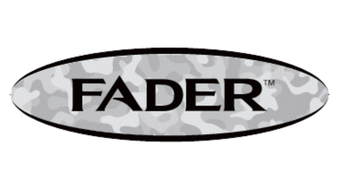Our Materials

Fabrication:
The key benefit of limestone neoprene is its smaller, more densely packed bubbles, which remain up to 95% intact during the production process. This structure makes the material lighter, more flexible, and more durable than traditional oil-based neoprene. The smaller bubbles also make limestone neoprene more resistant to water absorption, allowing the wetsuit to dry faster and stay lighter in cold water wetsuits. A 2mm limestone wetsuit provides similar warmth to a 3mm oil-based suit, thanks to better insulation properties from nitrogen gas used in the process.
Limestone neoprene also boasts superior flexibility and stretch. It can stretch up to 560% without damaging its structure, ensuring it returns to its original shape, unlike oil-based neoprene. This makes it perfect for flexible neoprene wetsuits that offer unrestricted movement and long-lasting performance.
In addition, all Fader wetsuits feature high-quality zippers on wetsuits for durability and ease of use. Our patented contrast gradient method provides the best surface camouflage, adding to the style and function of our UV-resistant wetsuits. With limestone neoprene, you get a more sustainable, high-performance wetsuit that lasts longer and works harder in all conditions.
Temperature Range:
Limestone neoprene offers superior thermal retention, making it more efficient at maintaining warmth than other types. However, temperature sensitivity varies by individual, so choosing the right thickness for your conditions is key. Layering also helps—wearing a swimsuit or springsuit under a 2mm surf/swimsuit can turn it into a winter-ready option.
Choose the best wetsuit thickness based on your temperature preferences and layering options for optimal comfort.
Temperature Guide:
- 2mm Swimsuits: 22–30°C
- 2.5mm Springsuits: 20–28°C
- 2mm Surf/Swim: 18–28°C
- 3/2.5mm Surf/Swim: 16–26°C
- 4/3mm Surf/Swim: 14–24°C
- 3mm Open Cell: 16–26°C
- 5mm Open Cell: 12–22°C
Fader Manufacturing:
Our overseas wetsuit manufacturers are WRAP (Worldwide Responsible Accredited Production) certified, ensuring eco-friendly wetsuits are produced in safe, socially responsible facilities. This certification guarantees adherence to strict ethical and environmental standards, with regular unannounced audits to ensure ongoing compliance. By choosing advanced technology wetsuits from WRAP-certified factories, we prioritise both safety-focused wetsuits and sustainability, minimising environmental impact while maintaining high-quality manufacturing practices.



